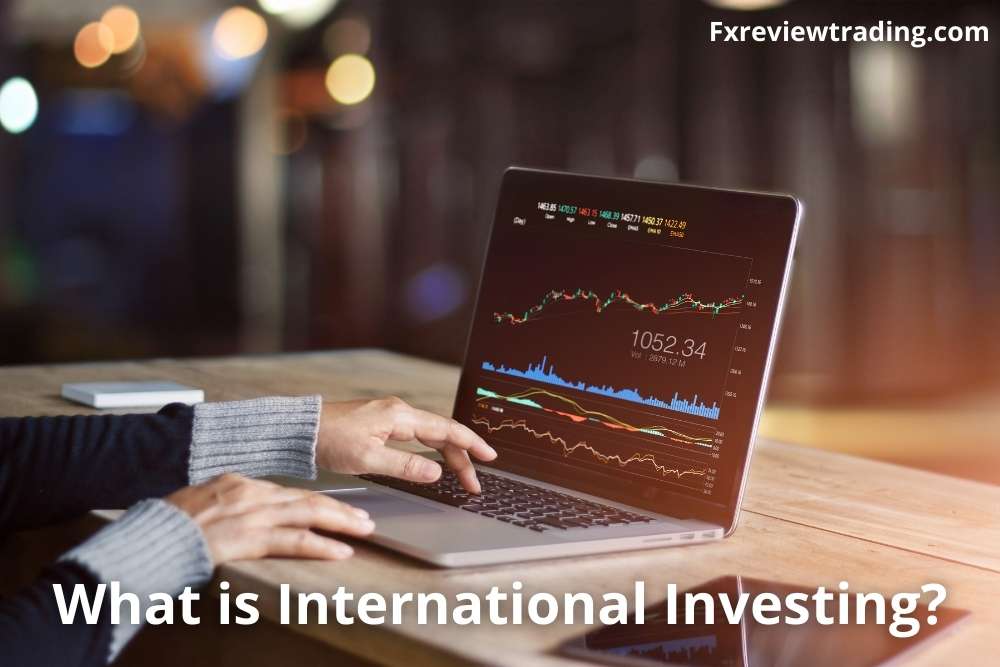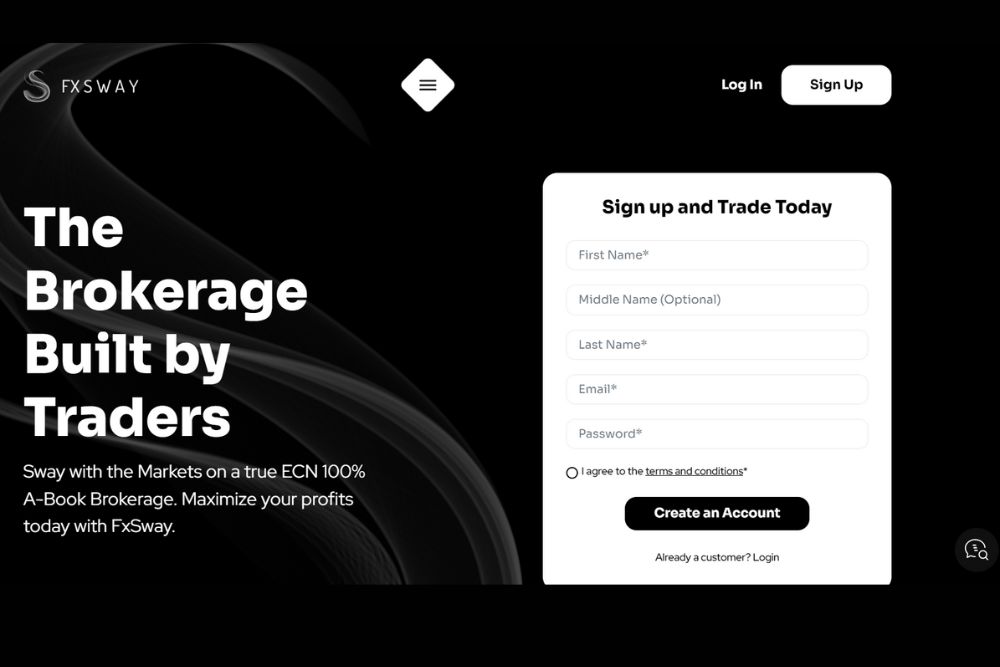International Investing is a strategy in which investors choose global investment instruments as part of a geographically diversified portfolio. It is a common investment strategy in which investors frequently invest globally to diversify their portfolios and distribute investment risk across different countries and industries.
International investing allows investors to choose from a larger pool of investment options when building their portfolios. In addition, it can help diversify an investor’s portfolio by introducing new sources of income.
International Investing can also alleviate some systemic risks linked with a country’s economy in particular situations. In general, it broadens the range of investment instruments available to a portfolio beyond domestic investment.
An investor might turn to the same sorts of investment alternatives that they can find in their own country. Global investment markets provide investors with a wide range of equities, bonds, and mutual funds.
What are the Benefits of International Investing?
There are a few advantages of International Investing that aren’t available when you invest in the domestic market. If your country’s economy is performing poorly, keeping money in another economy might help keep your portfolio’s value up.
Here are some benefits of International Investing:
Choice of Investment Options:
Investing in international markets allows you to take advantage of financial possibilities that aren’t available in your own country. Some of the world’s top IT businesses are based in developed markets such as the United States, the United Kingdom, and Europe.
You will have a range of investment options available to invest in. Apart from this, it can offer a lot of growth. Many investors concentrate their efforts on the world’s emerging markets, where there is plenty of room for expansion.
Portfolio Diversification:
The most obvious, yet most important, the benefit of International investing is diversification of portfolio. During market turbulence, a diverse portfolio provides a source of stability.
Different asset types, such as bonds, stocks, and other assets, are included in a diversified investment portfolio. These vehicles diversify their portfolios by acquiring stock in a variety of firms, asset classes, and industries.
In other words, there is a low connection between investments when they are spread out across regions. This means that volatility in one market is unlikely to impact your other investments.
Instead of focusing just on domestic stocks and bonds, an investor may diversify their portfolio by purchasing overseas equities or investing in a mutual fund that focuses on international investments. Here are the Best stock brokers in Uk.
Investment Security:
The protection of investments from fraud and liquidations is another key benefit of investing in international markets. In general, developed market enterprises are governed by strict rules that assure good corporate governance and harsh penalties for market manipulation.
This safeguards ordinary investors from possible fraud and insider trading losses. But, as every investor knows, capital is always at risk, although many international financial institutions provide security against seizures and other risks related to brokers.
Currency Exchange Rate:
The conversion rate of international currencies is constantly changing with market trends. The currency of the investor’s native nation may see ups and downs. A stronger currency in another country where an investor maintains a portfolio can sometimes be advantageous to the investor.
Access to International Market:
When you decide to invest in the International market, you can get access to enter a range of markets. Additionally, International investments open up a slew of new possibilities. You can gain exposure to a worldwide innovator’s company shares if you believe in their idea.
What are different ways to invest in the International Market?
There are three ways to invest in the International market. You can utilize any one of these choices or a combination of them. When making a decision, keep in mind all the rules and regulations of the region.
Direct Investing:
You can make direct investments in international markets using digital platforms. Brokers that provide access to overseas stocks are an excellent place to start if you want to make quick investments.
Alternatively, many brokers provide access to the major global market. But choosing a reliable one is always good to get started. One such broker is InvestBy. You can open an account with them to access numerous assets across the global markets.
You can use your direct access to invest in stocks, ETFs, and active funds in various markets that you feel have the potential to perform well in the future.
Investing in ETFs or Index Funds:
Mutual Funds or ETFs that invest in International funds are one of the indirect ways to participate in international markets.
In simple words, when you can invest in a mutual fund. Then, it invests in one or more ETFs, index funds, or equities outside of your country, providing you with indirect international market exposure. This is the great place to start if you want to invest in global markets.
Today, the majority of asset management firms (AMCs) are introducing overseas funds. The benefit of investing indirectly is that you don’t have to start with a brokerage account.
Investment in an International fund:
International funds are stocks run by international professionals who invest in products in their own country. While there are domestic restrictions to be aware of, this might be another option to gain exposure to international markets while relying on experts from those countries.
What are the risks associated with International Investing?
Above, we have mentioned all the benefits of International Investing. However, you should also consider all the risks associated with it before investing in international markets.
Here’s a list of risks you should be aware of when Investing in International markets.
High Transaction Fees:
The high transaction fees, which vary based on the foreign market you intend to participate in, are one of the risk factors you should consider while investing in International markets. However, you can enjoy commission-free trading on InvestBy.
On top of the brokerage commissions, there may be other fees such as Forex exchange charges, transfer fees, and yearly maintenance fees you should consider while investing.
The volatility of the Currency:
Before investing directly in overseas markets, you must first convert your domestic currency into a foreign currency at the current exchange rate.
Suppose you buy a foreign stock and hold it for a year before selling it. Then, you convert it into your domestic currency. Depending on the domestic currency’s direction, this might increase or lower your returns.
Political Risks:
You should think about the country’s political situation before investing. This is because political events impact the country’s internal markets and can cause volatility.
Even the most well-known enterprises in developing markets might get affected by government and policy decisions. This is something we’ve seen recently in Brazil.
Other risks related to International Investing includes:
- Variations in market value
- Changes in interest rates
- Economic and social events
- Low liquidity
- Access to important information is restricted
- Different market procedures and activities
Factors to Consider before Investing in International Markets:
Fees and Commission:
To get direct access to the International market, you’ll first need to open an account with a broker. For this, brokers may charge some fees or brokerage commission. However, there are some brokers, such as InvestBy, who offer commission-free trading.
Apart from commission charges, always look for your per transaction charges, minimum billing, and other factors to ensure you’re computing a fully loaded cost of exposure to an international market.
Exposure to Assets:
The majority of International markets are focused on stocks. However, there are several other significant asset types in which you can now invest through mutual funds. As you plan your asset allocation, keep in mind that this exposure is a component of it.
Expertise
Investors may assume they are familiar with their own domestic market. However, there are complexities of political situations, shifting legislation, disclosure requirements, and macroeconomic policy in foreign countries that are difficult to understand when discussing international investment.
So, before investing in foreign markets, it is vital to either educate yourself or invest through an expert/index fund for basic exposure.
Foreign Taxes:
Profits earned in a foreign nation may be subject to taxation in that country. In that nation, you may be compelled to file a tax return. Furthermore, as a domestic tax resident, you may be required to pay taxes in your country too.
On the other hand, be sure your brokerage or fund can supply you with the necessary paperwork and profits calculations when it comes time to pay your taxes.
What are the Different Types of International Investment?
International Investment is classified into two groups based on how they are used:
- Foreign Direct Investment (FDI)
- Foreign Portfolio Investment (FPI)
Foreign Direct Investment (FDI):
Foreign Direct Investment (FDI) is an investment strategy in which a person invests in a foreign company to gain ownership or collaborate. Investors create a long-term stake in the business entity through FDI, implying a long-term connection between the investor and the firm with a considerable degree of control over the management of the enterprise.
Foreign Portfolio Investment (FPI):
A Foreign Portfolio Investment (FPI) is a financial investment made in a foreign economy by a person who has no intention of getting involved in the administration of any firm. Foreign Portfolio Investors acquire assets traded in a different nation that are highly liquid and can quickly find buyers when needed.
Instruments such as stocks and bonds are examples of such securities. FPI might be short-term when an investor expects a quick return due to changes in the currency rate, interest rate, or other factors.
Otherwise, Foreign portfolio investments are made with the intention of owning the asset for the long term, and such investments are influenced by factors such as the economy’s growth rate, macroeconomic stability, interest rates, and so on.
Conclusion:
As we have discussed all International Investing and How it works? In the end, it is good to say that this investment strategy has become a must to attain significant portfolio diversity. (Learn the difference between forex and stocks)
While the benefits are appealing, you must also consider the risks associated with them. A wealth of information is accessible on the internet to help you assess risks and ensure that your portfolio is well-balanced. However, before making any investment decisions, you should do better research and have basic knowledge about it.
FAQ:
Is International Investing good for Investors?
In addition to domestic markets, international investing helps investors spread their investment risk among foreign companies and marketplaces. International investment capitalizes on the development potential of some foreign economies, particularly in emerging markets.
What are the benefits of investing in international stocks?
International stocks, or shares in firms based in other countries, may help diversify your portfolios, hedge against risk, and grow your investment for higher returns.
What are types of International Investing?
Foreign Portfolio Investment (FPI) and Foreign Direct Investment (FDI) are the two primary types of international investment.
What is the importance of International Investment?
International investing adds to your portfolio’s wealth-generating potential while also helping to diversify risk.
How much should I invest in International Investments?
Most financial experts suggest investing 15% to 25% of your money in international stock. It’s significant enough to affect your portfolio, but not so much that it will negatively affect you if international markets temporarily fall.








